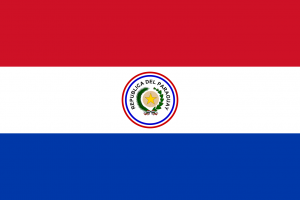Difference between revisions of "Language/Paraguayan-guarani/Grammar/Plurals"
m (Quick edit) |
m (Quick edit) |
||
| Line 38: | Line 38: | ||
<hr>If you have any questions, please ask them in the comments section below.<br>Feel free to edit this wiki page if you think it can be improved. 😎 | <hr>If you have any questions, please ask them in the comments section below.<br>Feel free to edit this wiki page if you think it can be improved. 😎 | ||
==Related Lessons== | |||
* [[Language/Paraguayan-guarani/Grammar/Pronouns|Pronouns]] | |||
* [[Language/Paraguayan-guarani/Grammar/Adjectives|Adjectives]] | |||
* [[Language/Paraguayan-guarani/Grammar/Future-Tense|Future Tense]] | |||
* [[Language/Paraguayan-guarani/Grammar/Conditional-Mood|Conditional Mood]] | |||
* [[Language/Paraguayan-guarani/Grammar/Negation|Negation]] | |||
* [[Language/Paraguayan-guarani/Grammar/Questions|Questions]] | |||
{{Paraguayan-guarani-Page-Bottom}} | {{Paraguayan-guarani-Page-Bottom}} | ||
Revision as of 22:52, 25 February 2023
Hi Paraguayan Guaraní learners!😊
Learning Paraguayan Guaraní Grammar is an exciting journey! In this lesson, we will focus on plurals in Paraguayan Guaraní.
Plural Formation
In Paraguayan Guaraní, the plural of nouns is formed by adding the suffix -pe to the end of the word. For example, the singular form of the word "dog" is "mbo'e", and the plural form is "mbo'epe".
Irregular Plurals
There are some irregular plurals in Paraguayan Guaraní. For example, the singular form of the word "person" is "ñe'ẽ", and the plural form is "ñe'ẽngue".
Another example is the singular form of the word "child" is "ñemombe'ẽ", and the plural form is "ñemombe'ẽmi".
Plural Agreement
In Paraguayan Guaraní, the verb must agree with the subject in number. For example, if the subject is plural, the verb must also be in the plural form.
For example, the sentence "The dogs are running" would be translated as "Mbo'epe ojeporãi".
Plural Pronouns
In Paraguayan Guaraní, there are two sets of pronouns: singular and plural. The plural pronouns are used when referring to more than one person or thing.
The plural pronouns are:
- Nguereko - We
- Ñande - You (plural)
- Ñane - They
For example, the sentence "We are going" would be translated as "Nguereko ojeporãi".
Conclusion
In this lesson, we have learned about plurals in Paraguayan Guaraní. We have seen how to form regular and irregular plurals, and how to use plural pronouns. To improve your Paraguayan Guaraní Grammar, you can also use the Polyglot Club website. Find native speakers and ask them any questions!
If you have any questions, please ask them in the comments section below.
Feel free to edit this wiki page if you think it can be improved. 😎
Related Lessons
